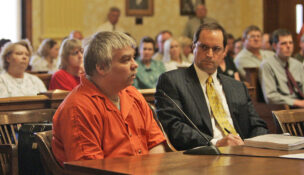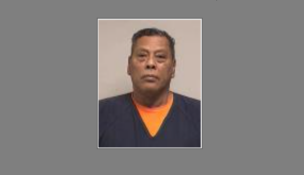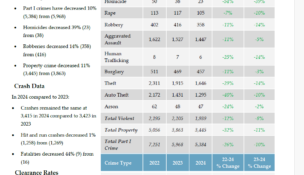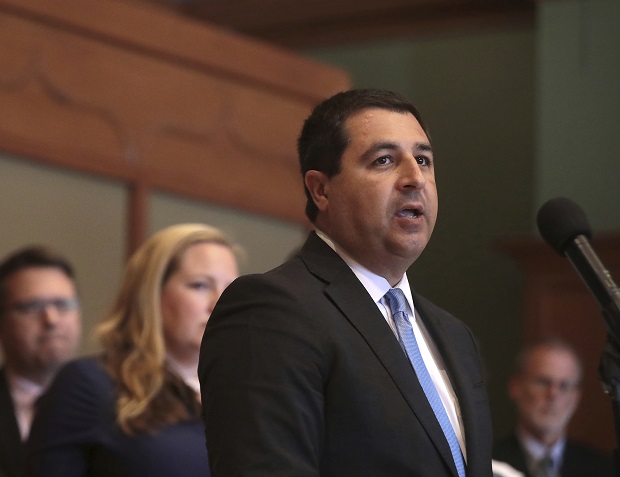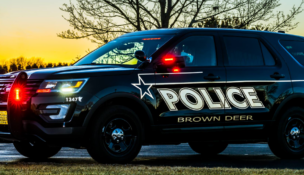Federal judge rules Wisconsin’s same-sex marriage ban is unconstitutional (UPDATE)
By: Eric Heisig//June 6, 2014//
Federal judge rules Wisconsin’s same-sex marriage ban is unconstitutional (UPDATE)
By: Eric Heisig//June 6, 2014//
A Madison federal judge has ruled that Wisconsin’s ban on same-sex marriage is unconstitutional.
Western District of Wisconsin Judge Barbara Crabb, in an 88-page opinion released Friday, wrote that Wisconsin’s constitution, which defines marriage as between a man and a woman, violates the U.S. Constitution’s 14th Amendment.
Crabb wrote that she did not found arguments made by Attorney General J.B. Van Hollen’s office persuasive and later stated that even they “seem to acknowledge that the writing is on the wall.”
But Van Hollen quickly moved to counter the decision Friday evening, requesting a telephone conference with Crabb to hear arguments on an emergency stay of her order.
According to motion from Van Hollen’s office, “those couples who marry may be thrown into legal limbo depending on further developments in the case.”
In her decision earlier Friday, Crabb wrote “… It appears that courts are moving toward a consensus that it is time to embrace full legal equality for gay and lesbian citizens. Perhaps it is no coincidence that these decisions are coming at a time when public opinion is moving quickly in the direction of support for same-sex marriage.”
Her decision stemmed from a lawsuit the American Civil Liberties Union filed against the state in February on behalf of eight gay couples challenging Wisconsin’s constitutional ban on gay marriage. The lawsuit contends that the ban denies gay couples the civil rights that other married couples enjoy.
The lawsuit alleges that Wisconsin’s ban violates the U.S. Constitution’s Equal Protection and due process, asserting the prohibition deprives gay couples of legal protections married couples enjoy simply because of their sex.
It also points out that gay couples who reside in Wisconsin can’t get married in another state and return to Wisconsin legally; a provision in state law declares that anyone who marries in another state to circumvent Wisconsin law can face up to $10,000 in fines and jail time.
Crabb did not issue an immediate order striking down the ban.
According to her opinion, the plaintiffs have until June 16 to submit a proposed injunction to the unconstitutional law.
According to a statement attributed to ACLU of Wisconsin legal director Larry Dupuis after Crabb’s decision was released Friday, the organization is “tremendously happy that these loving and committed couples will now be able to access the security and recognition that only marriage provides. These discriminatory laws are falling around the country and it is only right that Wisconsin move forward as well.”
In an earlier statement attributed to Van Hollen’s office Friday, it said it planned to appeal the decision.
“While today’s decision is a setback, we will continue to defend the constitutionality of our traditional marriage laws and the constitutional amendment, which was overwhelmingly approved by voters,” according to Van Hollen’s statement. “Importantly, current law remains in force. I am encouraged by the District Court’s refusal to issue an immediate injunction.”
In her opinion, Crabb acknowledged that the decision likely will be appealed.
Wisconsin voters amended the state constitution in 2006 to outlaw gay marriage or anything substantially similar. The state has offered a domestic partner registry that affords gay couples a host of legal rights since 2009 but its future is in doubt; the conservative-leaning state Supreme Court is currently weighing whether it violates the constitution.
According to Crabb’s opinion, “It is obvious that courts must be sensitive to judgments made by the legislature and the voters on issues of social policy and should exercise the power of judicial review in rare instances. … We are long past the days when an invocation of ‘state’s rights’ is enough to insulate a law from a constitutional challenge.”
She also wrote that, “In reaching this decision, I do not mean to disparage the legislators and citizens who voted in good conscience for the marriage amendment. … Rather, it is necessary to conclude only that the state may not intrude without adequate justification on certain fundamental decisions made by individuals and that when the state does impose restrictions on these important matters, it must do so in an even-handed manner.”
The ruling makes Wisconsin the 27th state where same-sex couples can marry under law or where a judge has ruled they ought to be allowed to wed.
The Wisconsin Supreme Court declined last month to hear a same-sex marriage case.
Democratic gubernatorial candidate Mary Burke called the ruling a victory for fairness and equality.
U.S. Rep. Mark Pocan, D-Wisconsin, said the ruling will end to poor treatment of gay couples.
Gov. Scott Walker, a potential 2016 Republican candidate for president, has a long history of opposing gay marriage and Wisconsin’s 2009 domestic registry law. But in recent months he’s avoided talking directly about the state’s ban, which he supported, saying it’s an issue that needs to be decided by the courts and state voters who can amend the constitution.
Clerks in the state’s two largest counties, Milwaukee and Dane, had been preparing for such a ruling by bringing in extra staff to handle an expected flood of marriage-license applicants. Milwaukee County’s Clerk of Courts office will stay open until 9 p.m. Friday and planned to be open 9 a.m. to 1 p.m. Saturday. Dane County’s Clerk of Courts also is open until 9 p.m. Friday, and planned to be open from 9 a.m. to 5 p.m. Saturday, unless an injunction is filed, Deputy Clerk Judy Novak said.
The Associated Press also contributed to this report.
Legal News
- Steven Avery prosecutor Ken Kratz admits ‘mistakes were made’
- Colombian national extradited to Milwaukee faces International narcotics-trafficking conspiracy charge
- MPD: Milwaukee homicides down nearly 40 percent compared to last year
- EVERS: Republican lawmakers No-Show at special meeting to release statewide PFAS funding, stabilize healthcare access
- Wisconsin ICAC Task Force conference on Missing and Exploited Children highlights increase in sextortion cases
- More than 300 Wisconsin officers back in law enforcement after being fired or forced out
- Former Trump staffer who said to ‘fan the flame’ after 2020 loss hired to lead Wisconsin GOP
- Gov. Evers appoints David Casey to Serve as DOR Secretary
- Former Marine sentenced for Molotov Cocktail attack against Planned Parenthood Clinic
- ABA names 34th Annual Margaret Brent Women Lawyers of Achievement Awards honorees
- FBI launches criminal investigation into Key Bridge collapse
- Man charged in slaying after woman’s leg found at Milwaukee-area park
WLJ People
- Power 30 Personal Injury Attorneys – Russell Nicolet
- Power 30 Personal Injury Attorneys – Benjamin Nicolet
- Power 30 Personal Injury Attorneys – Dustin T. Woehl
- Power 30 Personal Injury Attorneys – Katherine Metzger
- Power 30 Personal Injury Attorneys – Joseph Ryan
- Power 30 Personal Injury Attorneys – James M. Ryan
- Power 30 Personal Injury Attorneys – Dana Wachs
- Power 30 Personal Injury Attorneys – Mark L. Thomsen
- Power 30 Personal Injury Attorneys – Matthew Lein
- Power 30 Personal Injury Attorneys – Jeffrey A. Pitman
- Power 30 Personal Injury Attorneys – William Pemberton
- Power 30 Personal Injury Attorneys – Howard S. Sicula





